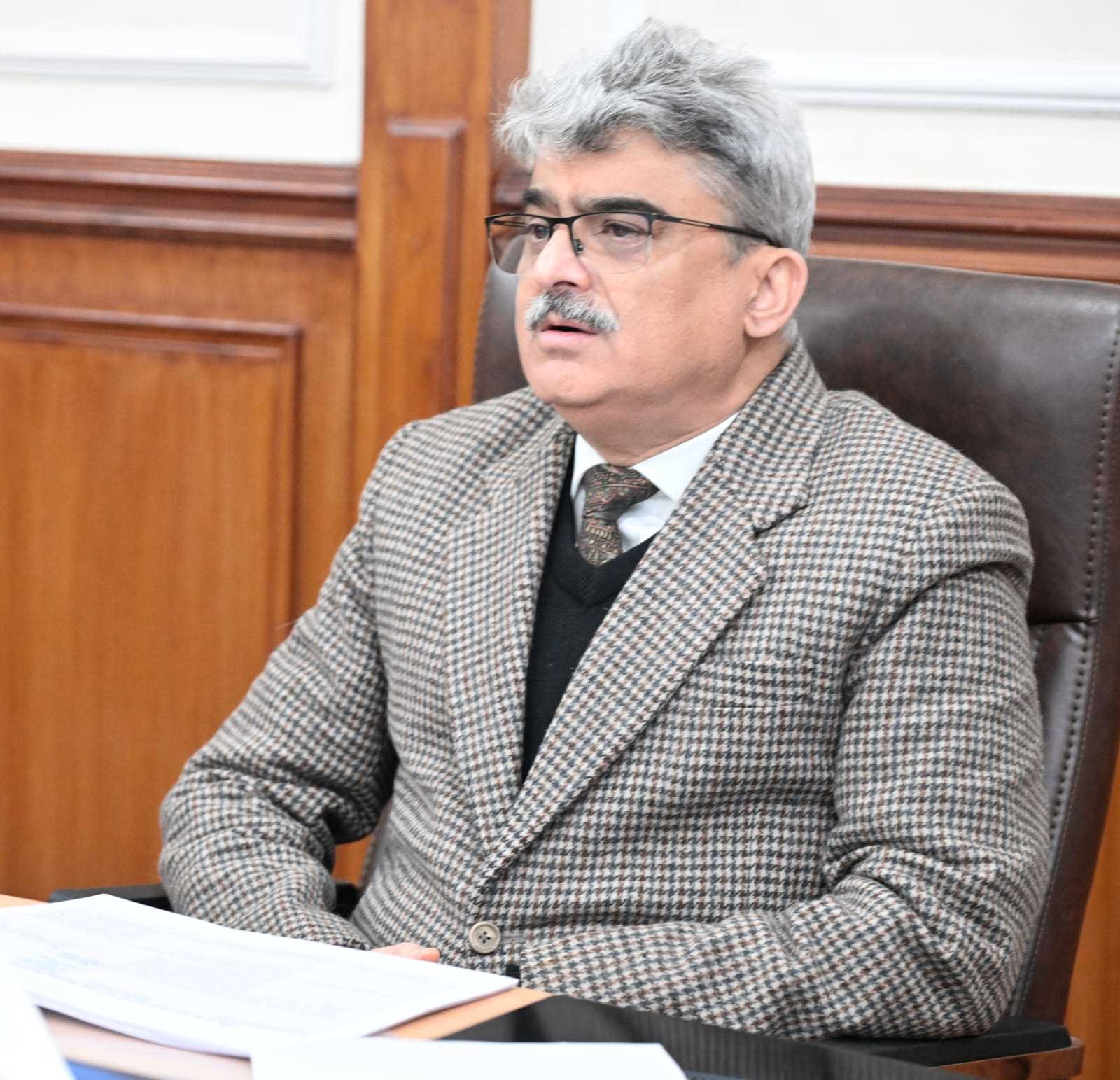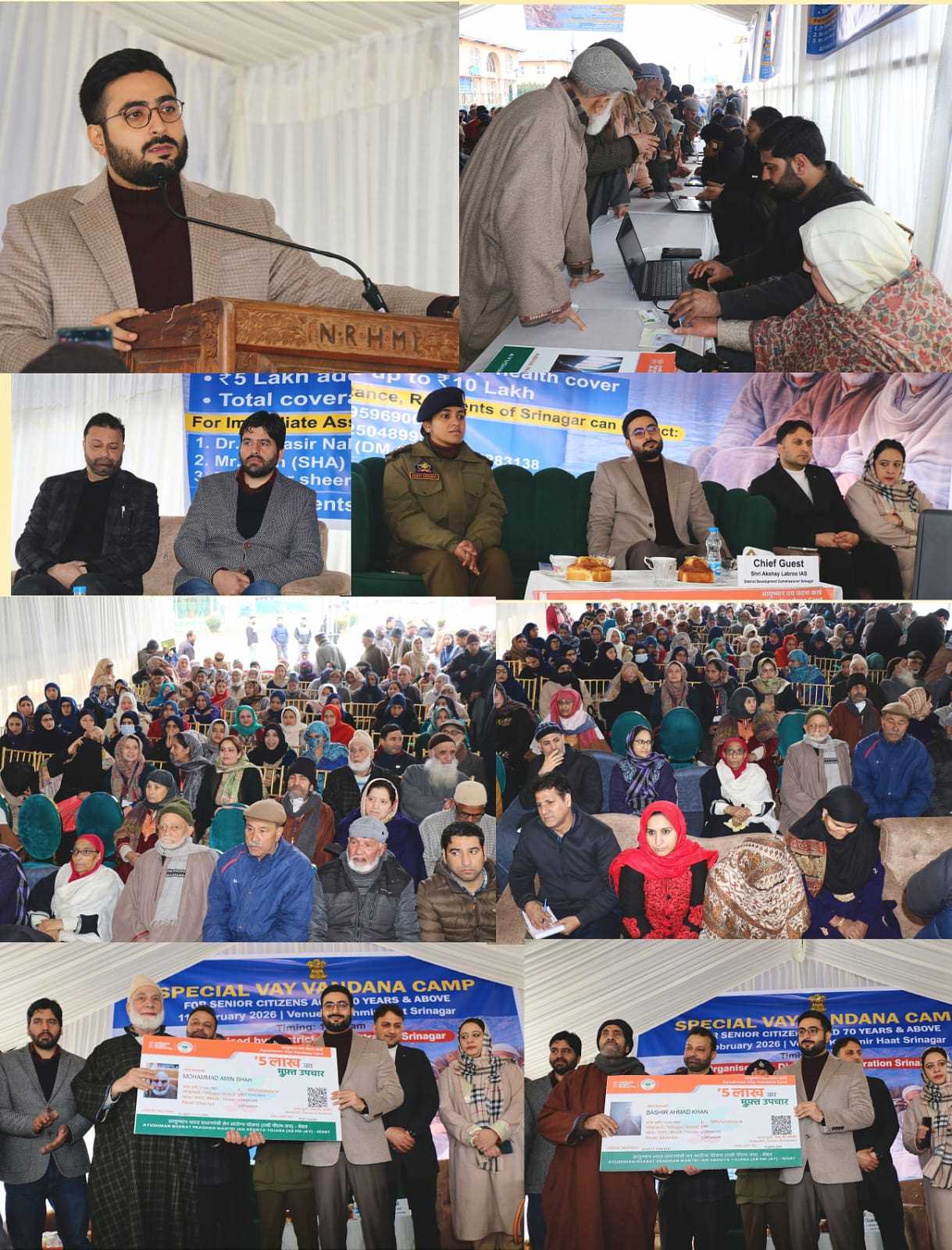The Pahalgam attack on 22 April has jolted Kashmir not only but the entire subcontinent. The attack was not against a location or a group of people, but an attack against the very idea of humanity, peace and coexistence. After this barbaric act, the people of Kashmir stood up in a single voice to condemn this act of violence, extremism and any such attempt to link such heinous act to religion or land.
The air across the Valley is heavy with mourning and defiance. Defiance against hatred. Defiance against terror. Their defiance against those who want to tarnish the name of Kashmir and Islam through committing acts which have no place in civilized world.
Kashmir is today in grief and protest. The markets are shut, the streets are empty and the public transport off the roads across all major towns and cities — Sopore to Srinagar, Anantnag to Baramulla — the day is a complete halt. Kashmiris do not stand for violence in any form, the message is loud and clear. Kashmiris choose peace over bloodshed.The Pahalgam attack is an explicit and targeted attack on the values that unite the human. Regardless of who they are, the attackers did not strike a military target or engage in a political protest, they attacked innocent civilians, people who had no weapons, no shields, no defenses. This was not resistance, it was murder.
The terror acts are meant to instill fear, hatred and division. Instead, they have united Kashmiris of all religious, regional and political persuasions in an unprecedented display of unity. Kashmiris have proved that humanity wins against hatred by gathering for candlelight marches in every major district, by closing down normal life to one day of mourning in unison, by speaking out against violence on social media and in private conversations.
The teachings of Islam are quite clear that such acts are totally against Islam. No true Muslim — knowing the essence of the religion — can and will not commit the murder of the innocents. Islam is a religion based on salaam, rahm, and adl. The life of a human being is very precious and the Prophet of Islam talked extensively about the sanctity of life and condemned acts of unjust violence.Because of that, those who perpetrate such attacks cannot say that they are acting in the name of Islam. They betray the basic teachings of the faith they claim to be following. They are the most abhorrent kind of violation of the most sacred principles which Muslims consider so dear. This is not just a violation of the victims; it is a violation of God, morality, and human dignity itself. Kashmiris well know that this, because for them, life has been entwined with Islamic teachings of peace and brotherhood. That is why the Kashmiri people, in every mosque, every village, every home, are today mourning the victims and the very perversion of a faith that preaches only peace.
It would be unwise to view this attack in isolation. The timing, the method, and the targets all suggest a coordinated attempt to destroy the enhanced reputation of Kashmir. In recent years, after decades of conflict, Kashmir had begun slowly but surely to regain its place as one of the most beautiful and peaceful tourist destinations in the world. Srinagar's streets were filled with tourists. Pahalgam, Gulmarg, and Sonamarg were again on the travel itinerary of foreign tourists. Hotels were filling up, handicrafts were being sold, and a sense of cautious optimism was emerging among the people.
The assault on Pahalgam, then, appears intended to crush that nascent hope. By attacking a tourist destination, the attackers hope to revive fear among domestic and foreign tourists, sending Kashmir back into the shadows of strife and out of the light of economic and cultural renewal. The Kashmiri people see this evil intent. They know that each bomb that goes off, each gun that is fired, does not merely kill people — it kills jobs, aspirations, and the livelihood of thousands of families who rely on peace to earn their bread. Each attack takes Kashmir years, if not decades, back in its quest for normalcy.
By protesting enmasse, Kashmiris are not allowing terrorists to define them. They are reclaiming their story, illustrating that Kashmir is a place of peace, culture, and hospitality — not violence and terror. While mourning the loss of the dead and denouncing the attack, Kashmiris also call upon whoever was responsible for this heinous crime to be brought before justice at the earliest opportunity and definitively. Words of condemnation are insufficient; accountability must be sought. Whoever had planned, supported, or carried out this indiscriminate killing of innocent life must be held accountable to the fullest degree of the law.
Justice should be seen to be done — not merely for the victims and their kin, but for all peace-loving Kashmiris who cannot be parties to silence. A society that aspires to live up to the ideals of mankind cannot permit such crimes to go unpunished. We call for the criminals, whoever and wherever they are, to be brought to book, prosecuted, and punished under the most stringent provisions of the law. This is not revenge; this is necessary for the restoration of peace, trust, and the moral fabric of society.
The photographs emerging from Kashmir today speak a message that no words can ever hope to do justice to. In town squares and village street corners, candles burn against the night breeze. Families, shopkeepers, students, and elders stand in silence, heads bowed, with placards in their hands that speak of peace, of humanity, of solidarity. Markets are shut. Stores have lowered their shutters. Schools have announced a day of mourning. Streets that are usually filled with life are eerily quiet — not out of fear, but out of respect for the victims and in protest of the perpetrators' intentions. The bandh today is not a protest against the state or the government; it is a protest against violence. It is a protest against the politics of bloodshed. It is a statement that Kashmiris will not be mute witnesses to terror. They will resist — not with guns, but with solidarity, humanity, and moral courage.
Ultimately, the conflict Kashmiris are fighting today is not in the jungles or on the streets; it is in the very heart of their homeland. It is a conflict between the forces of peace and the merchants of death. It is a conflict between hope and despair, between the urge to have a future and the call of a dark past. By denouncing the attack on Pahalgam in unison, Kashmiris are deciding their destiny. They are saying, simply, that they desire a Kashmir where tourists from across the globe can stroll freely under the shade of chinars, where children can attend school without fear, where weavers can sell their carpets and shawls to travelers from far-off lands, and where the ring of laughter and prayer drowns the ring of bullets.
They are also reminding the world that the Kashmiris themselves are the victims of violence — and not the instigators. That they are the victims of the chaos, the war, and the terror that the world so freely associates with their name. The Pahalgam attack was an attack on all of us — on anyone who believes in humanity, peace, and dignity. But the response from Kashmir has been a ray of hope. It has shown that even in the face of tragedy, the light of humanity is brighter than the forces of hatred.
Kashmir's message to the world is loud and clear: We abhor terror. We cherish peace. We will not be defined by brutality. Islam never asks for the murder of innocents. Kashmir will never welcome the merchants of death. We, the people of Kashmir, lament the dead, denounce the killers, seek justice, and vow to persist — with our voices, our solidarity, and our dignity — for a better tomorrow. In the midst of all the candles burning last night and this evening, in the silence of all the closed shops, in the tears of all the mothers, in the prayers of all the believers, there is one truth which no act of terror can ever extinguish: Kashmir is with humanity. Kashmir is with peace. And Kashmir is standing tall.
Email:------------------zargarbarik5@gmail.com






